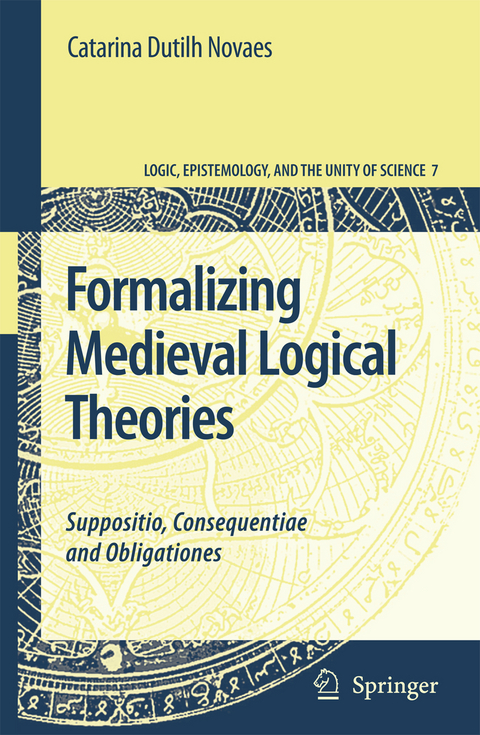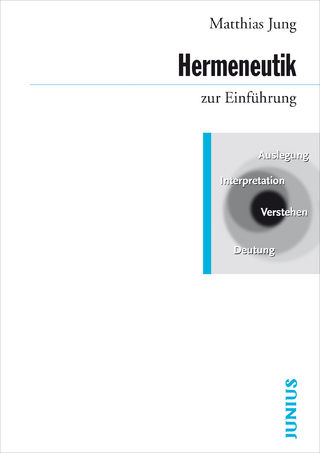
Formalizing Medieval Logical Theories
Suppositio, Consequentiae and Obligationes
Seiten
2010
|
Softcover reprint of hardcover 1st ed. 2007
Springer (Verlag)
978-90-481-7458-4 (ISBN)
Springer (Verlag)
978-90-481-7458-4 (ISBN)
Perhaps one of the most striking characteristics of later medieval philosophy and science is the remarkable unity with which the different fields of investigation were articulated to each other, in particular with respect to the methodology used. While it is fair to say that current science is characterized by a plurality of methodologies and by a high degree of specialization in each discipline, in the later medieval period there was one fundamental methodology being used across disciplines, namely logic. One can say without hesitation that logic provided unity to knowledge and science in the later medieval times. Logic (which was then understood more broadly than it is now, including semantics and formal epistemology) was one of the first subject-matters in the medieval curriculum; it was thought that the knowledge of logic was a necessary, methodological requirement for a student to move on to the other disciplines. And indeed, the widespread use of this logical and semantic methodology can be perceived in disciplines as diverse as natural philosophy (physics), theology, ethics and even medicine. Besides the fact that medieval logic provided unity to science then, while modern logic does not play the same role now (if anything at all, it is mathematics that might be considered as the fundamental methodology for current investigations), it is also widely acknowledged that the medieval and modern traditions in logic are very d- similar in many other respects.
Supposition Theory: Algorithmic Hermeneutics.- Buridan's Notion of Consequentia.- Obligationes as Logical Games.- The Philosophy of Formalization.
| Erscheint lt. Verlag | 30.11.2010 |
|---|---|
| Reihe/Serie | Logic, Epistemology, and the Unity of Science ; 7 |
| Zusatzinfo | XII, 316 p. |
| Verlagsort | Dordrecht |
| Sprache | englisch |
| Maße | 155 x 235 mm |
| Themenwelt | Geisteswissenschaften ► Philosophie ► Allgemeines / Lexika |
| Geisteswissenschaften ► Philosophie ► Logik | |
| Geisteswissenschaften ► Philosophie ► Philosophie des Mittelalters | |
| Sozialwissenschaften | |
| ISBN-10 | 90-481-7458-9 / 9048174589 |
| ISBN-13 | 978-90-481-7458-4 / 9789048174584 |
| Zustand | Neuware |
| Informationen gemäß Produktsicherheitsverordnung (GPSR) | |
| Haben Sie eine Frage zum Produkt? |
Mehr entdecken
aus dem Bereich
aus dem Bereich
die letzten Jahre der Philosophie und der Beginn einer neuen …
Buch | Hardcover (2024)
Klett-Cotta (Verlag)
CHF 39,20
Konfuzianismus, Daoismus, Buddhismus
Buch | Softcover (2023)
C.H.Beck (Verlag)
CHF 25,20


